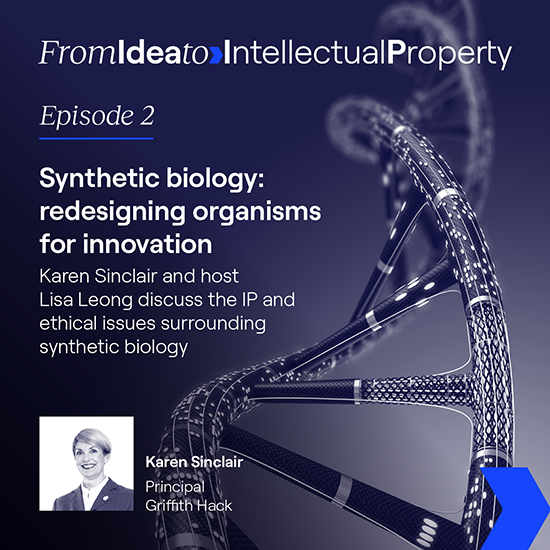
Thursday Jul 28, 2022
Synthetic Biology: Redesigning Organisms for Innovation

Scientists commenced mapping the human genome in 1990, and while we’ve come a long way since then, we’re really only just starting out on the journey of using genetic material to solve problems in medicine, manufacturing and agriculture.
However, as Griffith Hack Principal Karen Sinclair explains to host Lisa Leong, since mapping genetic material went mainstream, getting granted patent protection for genetic sequences has become more complex. The advent of synthetic biology has facilitated a great leap forward; enabling scientists to redesign sequences to produce replicas or adjusted versions of a biological outcome. And, importantly, to enable the “novelty” and “inventiveness” tests of patent law to be fulfilled.
The technology comes with its fair share of scientific and ethical conundrums, and Karen explains the vital role of IP both in protecting the investment of the people working in this ground-breaking field, and ensuring ethical boundaries aren’t breached.
For more insights on the importance of IP in turning ideas into commercial realities, be sure to follow From Idea to Intellectual Property; new episodes will be dropping fortnightly.
Comments (0)
To leave or reply to comments, please download free Podbean or
No Comments
To leave or reply to comments,
please download free Podbean App.